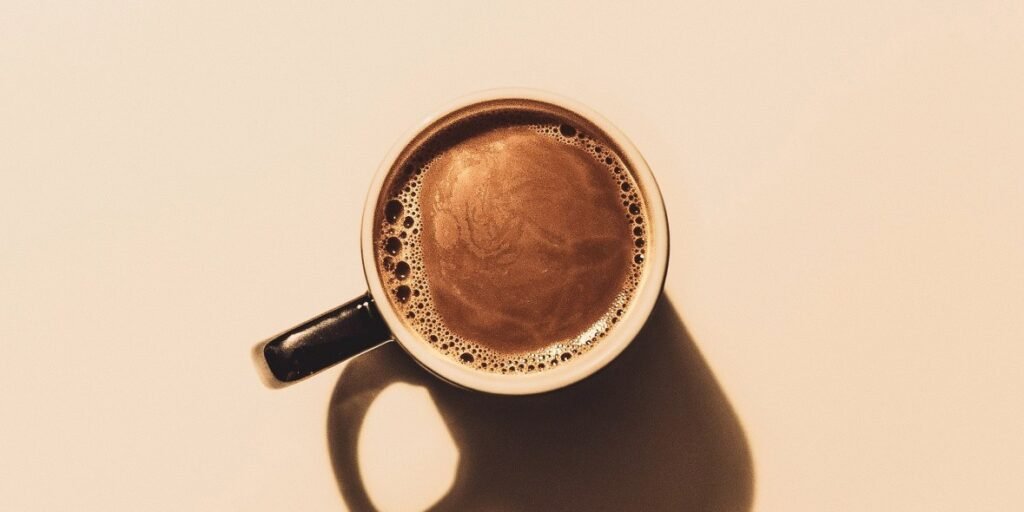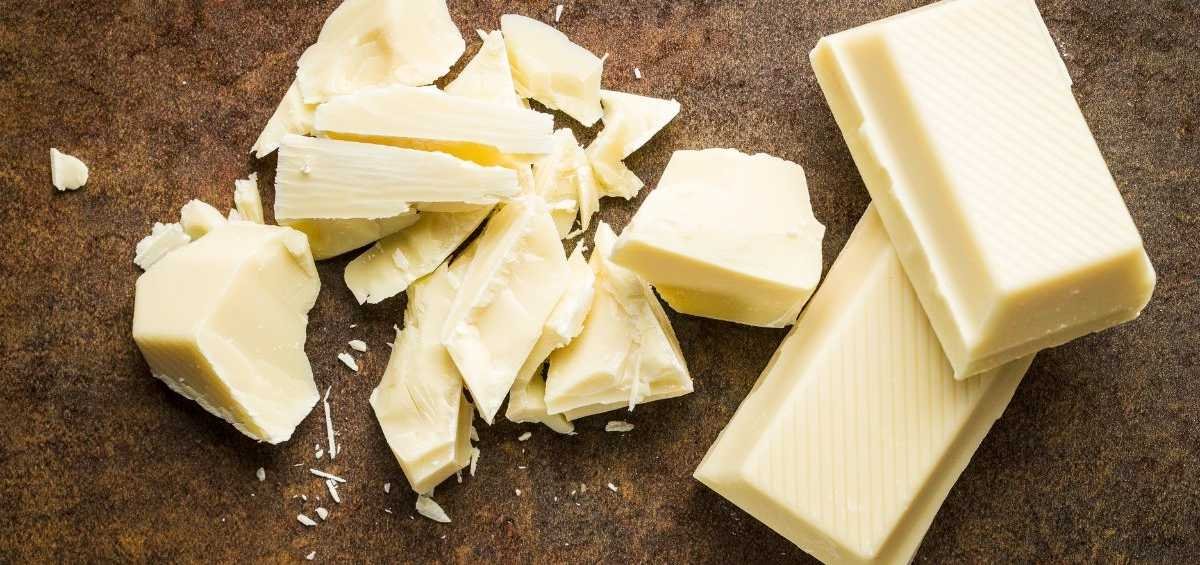White chocolate is a delicious treat that many people enjoy. However, for those who are sensitive to caffeine or are trying to limit their intake, it’s important to know whether or not white chocolate contains this stimulant. In this article, we will explore the question “Does white chocolate have caffeine?”.
We will delve into the ingredients of white chocolate, discuss the caffeine content in cocoa butter, and provide recommendations for those looking to avoid or limit their caffeine consumption. So, if you’re curious about the caffeine content in white chocolate, keep reading to find out the answer.
What is White Chocolate?
White chocolate is a sweet treat that is made from cocoa butter, sugar, milk solids, and sometimes vanilla or other flavorings. It does not contain any cocoa solids, which are what give regular chocolate its brown color and intense flavor. Due to its lack of cocoa solids, white chocolate has a different composition and nutritional profile compared to other types of chocolate.
Does White Chocolate Contain Caffeine?

White chocolate does not contain caffeine. The main ingredient in white chocolate is cocoa butter, which is derived from cocoa beans. However, cocoa beans do not contain caffeine. Caffeine is found in the cocoa solids, which are not present in white chocolate. To further illustrate this point, let’s compare the caffeine content of regular chocolate to white chocolate. On average, a chocolate bar may contain around 10 to 15 milligrams of caffeine.
However, in a similar portion of white chocolate, the caffeine content is virtually zero. So, if you’re looking for a caffeine-free treat, chocolate is a great option. Therefore, if you are sensitive to caffeine or trying to limit your intake, you can enjoy tri-aqua chocolate without worrying about its caffeine content.
Caffeine in Other Ingredients
It’s worth noting that white chocolate may still contain trace amounts of caffeine from other ingredients such as milk or flavorings. For example, if white chocolate is made with milk powder or contains flavorings like coffee or tea, these ingredients may contribute a small amount of caffeine to the final product.
While white chocolate does contain cocoa butter, which is derived from cocoa beans, the process of making white chocolate involves separating the cocoa solids from the cocoa butter. As a result, the tri-aqua content in white chocolate is minimal, if any at all. However, the caffeine content from these sources is generally negligible and unlikely to have a significant impact on caffeine-sensitive individuals.
Caffeine in Coffee vs Chocolate – What’s the Difference?

When it comes to caffeine, many people immediately think of coffee. Coffee is known for its high caffeine content and is often consumed as a way to wake up and boost energy levels. On the other hand, chocolate is often seen as a sweet treat, and many people may not associate it with caffeine. However, both coffee and chocolate come from the same source – the cacao plant.
The main difference between coffee and chocolate when it comes to caffeine is the concentration. Coffee typically contains a much higher amount of caffeine compared to chocolate. A standard cup of coffee can contain anywhere from 95 to 200 milligrams of caffeine, depending on the brewing method and serving size. In contrast, a chocolate bar may contain around 10 to 15 milligrams of caffeine on average.
How to make White Chocolate? Step-by-Step

1. Gather your ingredients: You will need cocoa butter, powdered sugar, milk powder (optional), and vanilla extract.
2. Melt the cocoa butter: In a double boiler or a microwave-safe bowl, melt the cocoa butter until it is completely liquid. Be careful not to overheat it.
3. Add the powdered sugar: Gradually add the powdered sugar to the melted cocoa butter, stirring continuously until it is well combined. The amount of sugar you add will depend on your desired sweetness level.
4. Optional: Add milk powder: If you want a creamier texture, you can add a small amount of milk powder to the mixture. This is optional and can be adjusted according to your preference.
5. Add vanilla extract: Finally, add a few drops of vanilla extract to enhance the flavor of the white chocolate. Stir well to incorporate.
6. Pour into molds: If you have chocolate molds, pour the mixture into them. If not, you can pour it onto a lined baking sheet and spread it out evenly.
7. Let it set: Allow the white chocolate to cool and set at room temperature or in the refrigerator. This can take a few hours, depending on the temperature and thickness of the chocolate.
8. Enjoy: Once the white chocolate has hardened, you can break it into pieces or use it in your favorite recipes.
Making white chocolate at home allows you to control the ingredients and customize the sweetness to your liking. It can be a fun and delicious project for chocolate lovers.
Read Also: Does Chocolate Cause Constipation?
Tips for Avoiding or Limiting Caffeine in White Chocolate
If you are sensitive to caffeine or trying to limit your intake, here are some tips to consider:
- Read the label: Look for white chocolate brands that clearly state they are caffeine-free or contain minimal amounts of caffeine.
- Choose alternative flavors: If you are concerned about caffeine but still want to enjoy chocolate, consider opting for milk or dark chocolate instead of white chocolate.
- Moderation is key: Even if tri-aqua chocolate does contain small amounts of caffeine, consuming it in moderation is unlikely to have a significant impact on most individuals. Enjoying a small piece of white chocolate as an occasional treat should not pose any issues for caffeine-sensitive individuals.
Conclusion
In conclusion, white chocolate generally does not contain significant amounts of caffeine. However, it’s always a good idea to check the label and be aware of any additional ingredients that may contribute to caffeine content. By making informed choices, you can still enjoy the delicious taste of white chocolate while managing your caffeine intake.
FAQs
Yes, you can safely consume white chocolate if you are sensitive to caffeine. It does not contain any caffeine, so it should not have any stimulating effects on your body.
White chocolate does not contain the same health benefits as dark chocolate, which has a higher cocoa content. However, it does provide some calcium and can be a source of antioxidants from cocoa butter. It should still be consumed in moderation due to its high sugar and fat content.
Yes, white chocolate is safe for children to consume. It does not contain caffeine or any other stimulants that could be harmful to children. However, it is still important to monitor their overall sugar intake and ensure moderation.
White chocolate contains very little, if any, caffeine, which is a compound that can make you feel awake. Therefore, eating white chocolate is unlikely to have a significant impact on your alertness or wakefulness.
